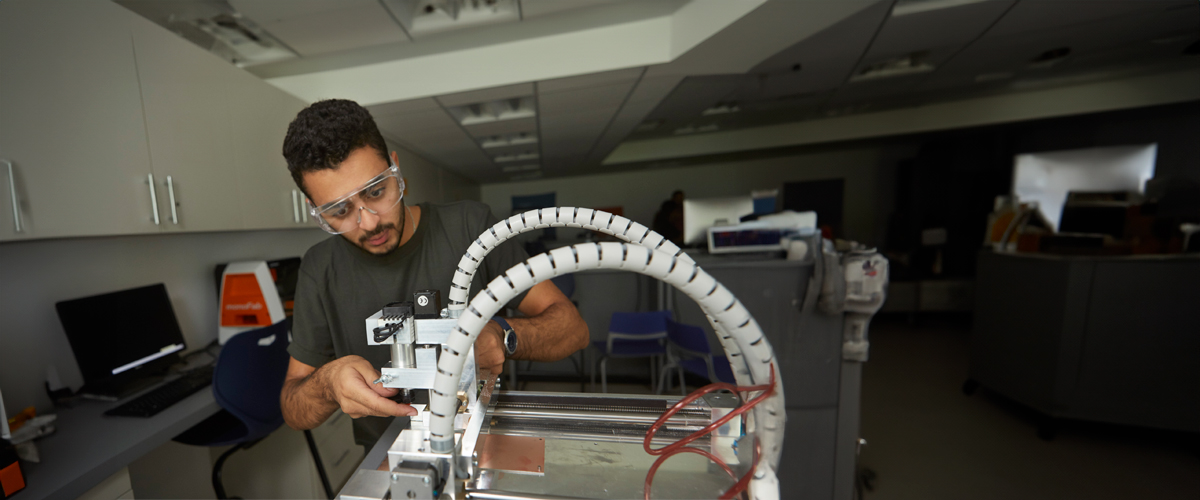
Bioengineering, M.S.
Program Snapshot
30 Credits
Program Resources
Related Links
Locations
Prepare to succeed in the fields of biotechnology and bioengineering. Get the analytical and practical tools necessary to create and develop new and novel medical devices.
Why Earn Your Master’s in Bioengineering at New York Tech?
The M.S. in Bioengineering combines coursework in engineering theory, life sciences, and entrepreneurship with laboratory work that fuses discipline-specific topics with research.
You’ll have the chance to engage in funded research projects supported by prestigious organizations such as the National Science Foundation, National Institutes of Health, and Department of Defense, collaborating closely with faculty at New York Tech’s Entrepreneurship and Technology Innovation Center (ETIC).
Upon graduation, you’ll have a comprehensive knowledge and proficiency in medical device design and practical applications, advanced topics in nanotechnology, molecular and cell bioengineering, bioinformatics, and biomedical imaging. You’ll be able to solve complex biomedical engineering and science problems and have technical knowledge and skills in micro-electro-mechanical systems (MEMS).
Request Information
Learn where a Bioengineering, M.S. from New York Tech can take you. Complete the form to start the conversation.
What You’ll Learn
Our bioengineering program prepares you for technical, managerial, or research and development careers in a variety of settings, including industry, startups, hospitals, research facilities, and government agencies.
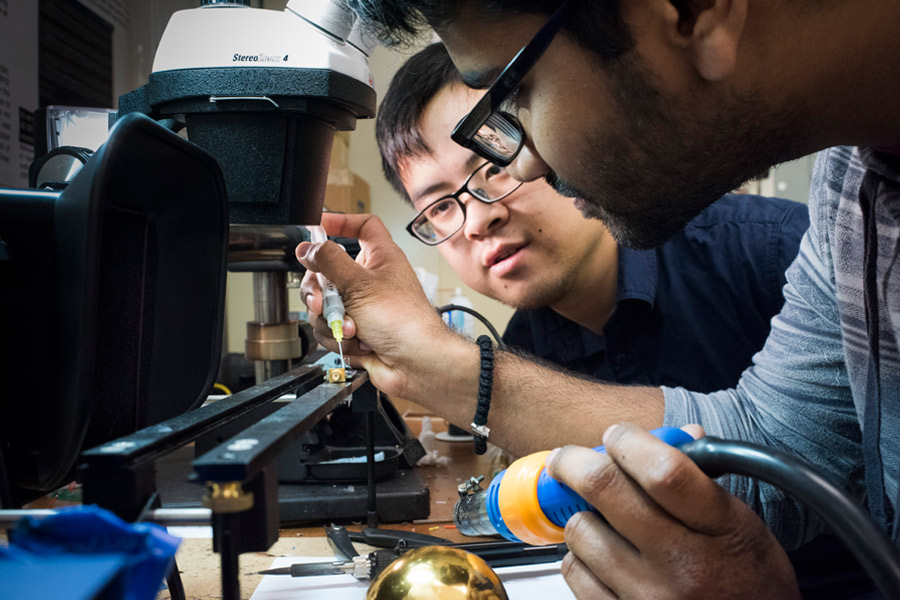
Customize Your Studies
The College of Engineering and Computing Sciences fosters a culture of innovation through research. As we strive to graduate creative inventors and entrepreneurs, our approach stands on the following:
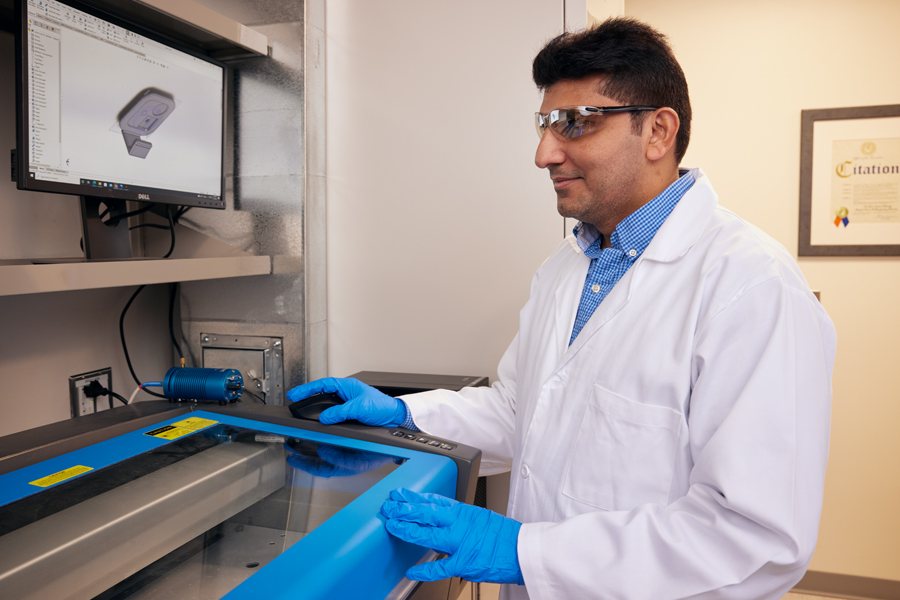
Research
Join interdisciplinary research teams in faculty-run labs focusing on applications involving machine learning, speech recognition, urban air quality forecasting, network security, medical informatics, and other technologies.
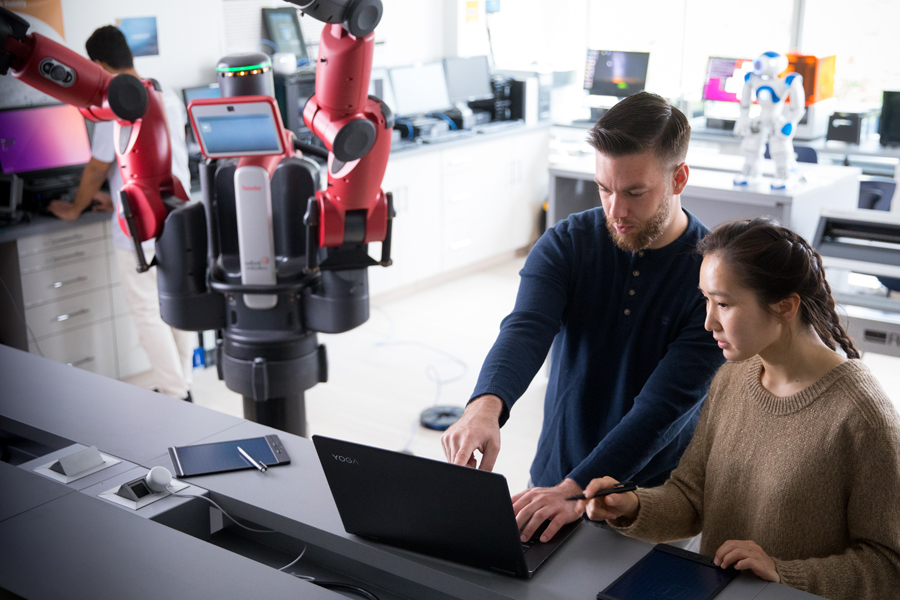
Entrepreneurship & Technology Innovation Center
Contribute to innovation at the intersection of research and entrepreneurship in our specialized labs and state-of-the-art facilities. Join with faculty and fellow students to develop solutions for partner businesses and organizations.
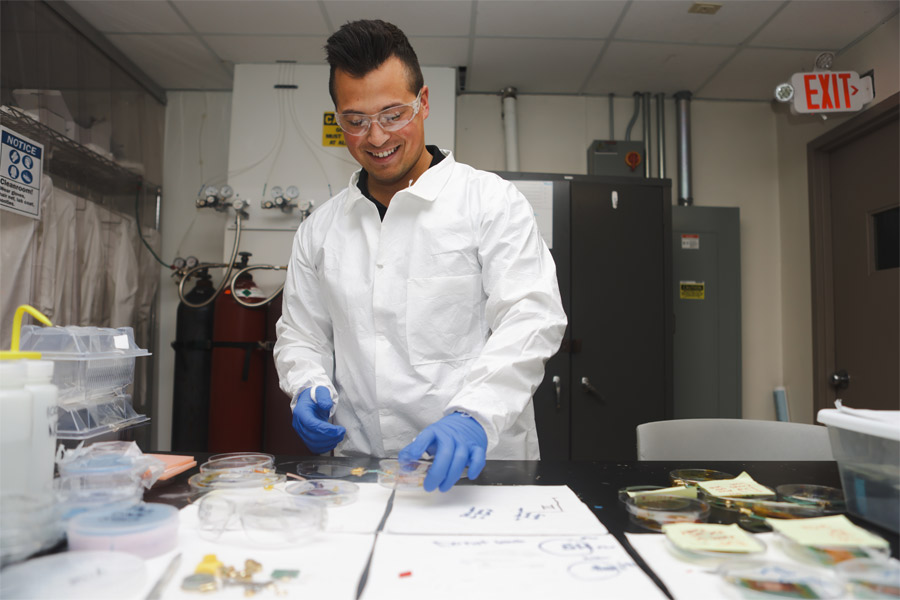
Engineering, Ph.D.
Seamlessly transition to our Engineering, Ph.D., where you’ll contribute to state-of-the-art engineering research alongside expert faculty-mentors. Learn to address, sustain, and lead in innovative, competitive environments in bioengineering, electrical and computer engineering, and mechanical engineering.
Stats & Rankings
Top 20
University for fostering diversity and inclusion
Woman Engineer
#53
Best Engineering Technicians Colleges and Universities in America
Pepler.com
19,500
Biomedical engineering jobs in the U.S. in 2022
BLS
Career & Salary Outlook
Job Growth
Employment of bioengineers and biomedical engineers is projected to grow five percent from 2022 to 2032. Approximately 1,200 openings for bioengineers and biomedical engineers are projected each year, on average, over the decade. (BLS)
Employers & Internships
- The Feinstein Institute for Medical Research
- Ovid Therapeutics
- Big Reuse
- New York Tech – Biomedical Science – Innovation Center
- Paratrees LLC
Career Options
- Bioinformatics
- Implantable and wearable technologies
- Medical device design
- Micro-electro-mechanical-systems (MEMS)
- Nanotechnology
- Telemedicine
Salary Projections
The median annual wage for bioengineers and biomedical engineers was $100,730 in May 2023. (BLS)
Program Details
Learn more about the Bioengineering, M.S. program, including admission requirements, how to apply, and scholarship and funding opportunities.
Thank you for your interest in the master’s degree in bioengineering.
Eligibility Requirements:
- B.S. or its equivalent from an accredited college or university
- Minimum GPA of 2.85 for your undergraduate coursework
To apply, submit the following:
- Completed application
- $50 application fee
- Copies of undergraduate transcripts
- Copy of your college diploma or proof of degree
- Official GRE scores, if you are a graduate of a foreign university or have a GPA below the minimum (GRE Code: 2561)
Note that international students have additional requirements.
Explore opportunities to offset program costs, including New York Tech scholarships, graduate assistantships, and federal financial aid. M.S. in Bioengineering students have access to both research fellowships and teaching assistantships.
International F-1 students who successfully complete this degree are eligible for an additional 24-month STEM OPT extension to work in the U.S. in an area directly related to their area of study immediately upon completing the customary 12-month post-completion Optional Practical Training (OPT).

Keep Exploring
From biomechanics to nanotechnology, prepare to embark on the next phase of your career with an advanced degree from New York Tech.